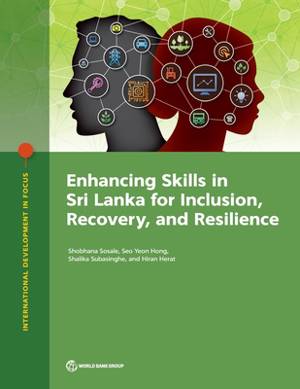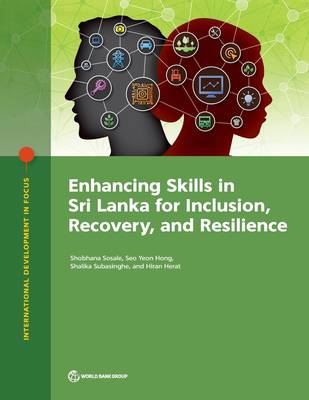
- Retrait gratuit dans votre magasin Club
- 7.000.000 titres dans notre catalogue
- Payer en toute sécurité
- Toujours un magasin près de chez vous
- Retrait gratuit dans votre magasin Club
- 7.000.0000 titres dans notre catalogue
- Payer en toute sécurité
- Toujours un magasin près de chez vous
Enhancing Skills in Sri Lanka for Inclusion, Recovery, and Resilience
Shobhana Sosale, Seo Yeon Hong, Shalika SubasingheDescription
Sri Lanka has confronted and is grappling with a number of exogenous shocks, including the devastating 2004 tsunami; the 2008 global recession; the COVID-19 global pandemic; and, more recently, the ongoing "triple crisis+? (fuel, food, fiscal). The country is now at a crossroads. An ongoing process of strengthening skills and improving education will be crucial to Sri Lanka's economic recovery.
Sri Lanka is transitioning from a rural-based to a modern, urbanized economy, and better jobs are being created, especially in services. To remain globally competitive, the Sri Lankan workforce must gain the technical competencies and higher-order cognitive skills that meet the needs of local and foreign labor markets. As a result, Sri Lanka will need to transform its current skills development system and processes to align them to emerging jobs; improve their market relevance; and develop an effective, inclusive, and accessible education and training system for skilling, reskilling, and upskilling the stock and flow of the workforce. Enhancing Skills in Sri Lanka for Inclusion, Recovery, and Resilience addresses these urgent issues and provides recommendations for educators and policy makers.
Spécifications
Parties prenantes
- Auteur(s) :
- Editeur:
Contenu
- Nombre de pages :
- 178
- Langue:
- Anglais
Caractéristiques
- EAN:
- 9781464820083
- Date de parution :
- 12-01-24
- Format:
- Livre broché
- Format numérique:
- Trade paperback (VS)
- Dimensions :
- 216 mm x 279 mm
- Poids :
- 630 g

Les avis
Nous publions uniquement les avis qui respectent les conditions requises. Consultez nos conditions pour les avis.






